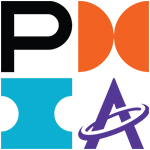Below is an AI summary of the event.
In this tech talk, Dave Mosher—staff software consultant at Test Double—presents “Ratcheting to Zero: How Incremental Constraints Eliminate Technical Debt.” Drawing from a real-world case study, Dave explains how his team tackled over 3,300 ESLint warnings in a JavaScript-to-TypeScript migration by building a ratcheting system into their CI/CD pipeline.
The talk walks through how the team:
- Migrated their codebase using
anytypes, which initially offered little real type safety. - Introduced automated guardrails that capped the maximum number of lint warnings allowed.
- Blocked regressions by enforcing these caps via shell scripts in GitHub Actions.
- Used teamwide prioritization to rank ESLint rules by impact (e.g., those breaking hot reloads).
- Adapted to production fires with bypass mechanisms while maintaining overall momentum.
- Gradually lowered the cap over 10 months to reach zero warnings—without halting feature development.
Dave also highlights how this method:
- Shifted the team’s culture, increasing engagement across disciplines and seniority.
- Provided leadership with visibility into progress and timelines.
- Avoided the pitfalls of “tech debt sprints” by amortizing improvements over time.
- Can be extended to other areas like test coverage, accessibility, dependency pruning, and infrastructure cleanup—anything quantifiable can be ratcheted.
The talk concludes with practical takeaways on pairing automation with adaptability, and how focusing on “the how” over Agile dogma can empower teams to meaningfully reduce technical debt while continuing to deliver value.






